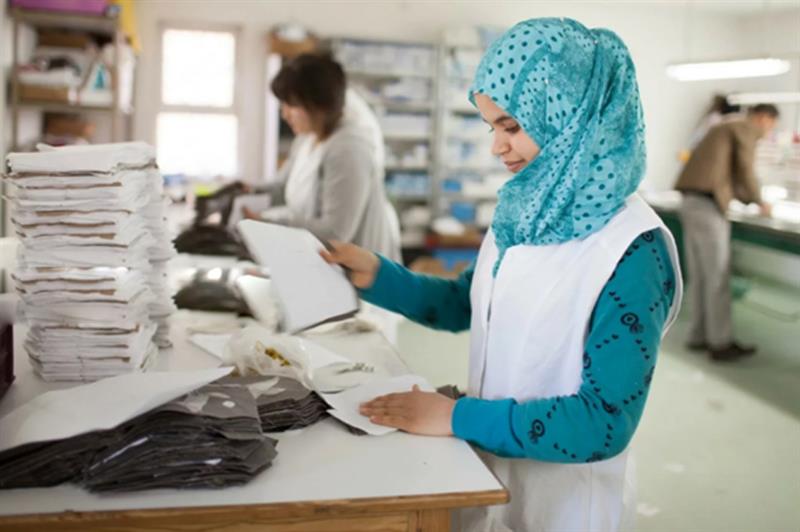
German financing for women s projects
Despite the fact that businesses owned or managed by women play an increasingly important role in Egypt, they still have a long way to go. According to the Global Gender Gap Report 2022, only one in 50 firms in Egypt has female-majority ownership and only six per cent of firms have top female managers.
Women account for less than a quarter of the labour force in Egypt, said a press release issued by Invest for Employment (IFE), an investment mechanism created by the KFW Development Bank on behalf of the German Ministry for Economic Cooperation and Development.
The lack of representation of women in the economy is an obstacle to economic growth, and in order to remedy it IFE is launching a call for proposals for projects in Egypt with a focus on women in November.
The initiative is intended to support women entrepreneurs and women-led businesses and to make financing available to projects that promote the employment of women. Applications are open to private companies as well as public entities, universities, chambers, associations, and NGOs.
IFE was launched in 2020 to promote and fund projects in African countries and create more jobs in the private sector, explained Karim Gad, country focal point for IFE in Egypt.
He said that in 2018, the G20 group of countries had launched its Invest for Jobs initiative to support job creation within partner African countries, including Egypt. Invest for Jobs was adopted by the German government, and Invest for Employment was introduced by the German development Bank KFW last year.
The initiative at first supported green projects. This year the first call will be for women in business followed by a regional call in several countries.
According to Gad, the initiative is looking for mature projects. “The projects have to be in a very developed state in terms of feasibility studies or market research, but they do not need to have started owing to obstacles that are beyond the entrepreneur or the applicant concerned,” he said.
Among the selection criteria is that the projects do not currently have access to funds. “This means that IFE money will make a difference in seeing the project come to life,” he said, adding that the initiative is also prepared to support projects that the banks may consider to be high risk or require collateral that the entrepreneur cannot provide.
Most importantly, the project has to create jobs that are sustainable with the prospect to grow. Funds are usually on a co-financing basis, varying from 25 per cent of the total investment cost to up to 90 per cent of the total.
The initiative aims at lifting the barrier of investment as well as encouraging foreign investment in the Egyptian market, Gad said. Some of these barriers include the absence or deficiency of infrastructure, like the need to enhance energy supplies or roadway systems.
Other financial institutions may only grant loans in the local currency or ask applicants for large interest payments or guarantees that could be more than the cost of the whole project.
This year’s call is aimed at women to comply with the aims of the government in increasing the role of women in the labour market.
“Our overarching objective is to create 100,000 jobs within the first five years of operation. We want to grow and help as many private and public-sector entities as possible in order to create more good jobs,” Gad concluded.
*A version of this article appears in print in the 29 September, 2022 edition of Al-Ahram Weekly.
Short link: